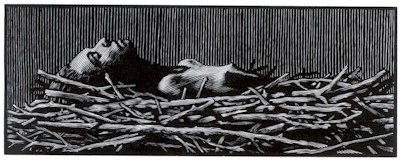Hey, nancy,
We know what Abe thought he knew what God meant----because of what he tried to do. But I am not convinced that he knew what the hell was going on with that test...
Because "burnt offering" is olah . and Olah is the word that was used in the Genesis22 story. not zebach. Zebach is the word for slaughter. It is unequivocal for the slashing cut of the victims throat. It would have been a wrap if that word were used.
Though it is reasonably assumed that a burnt offering is a whole animal killed and burnt (without the offerer retaining so much as a tail tassle)It is a mistake to think that olah and zebach were always understood to be interchangable. Abraham certainly assumed they were the same. And yet he was wrong. The word olah in its root meaning is completely different from the explicit word that graphically descibes slaughter (zebach).
How do we know that the Hebrews eventually made this distinction? When the Mosaic law set up all the involved practice for sacrifice ( and there were slews of new words and types of sacrifices) over and over you will see the two words are used in the same sentence--"sacrifice and burnt offering"--an occurance not necessary if they meant the same thing, But they didn't
It is said so often that Hebrew language is derived from concrete ideas--Written, the Hebrew alphabet pictures material objects--aleph=ox or bull, bet=house, gimel=throwing stick, dalet=door---stuff like that.
Olah means "ascent, as smoke rises up to heaven".
Eventually, there were no mistakes of understanding--and no one tried to kill their child for a burnt offering.
And I am not going to say one way or another what I think Abraham heard--I don't know if he got a letter, heard voices or ate the wrong kind of mushrooms. Just saying that this idea that Abraham hadn't a clue what was really going down as he walked toward Mt. Moriah--- But the Genesis22 word that was always used in every copy of scripture has been olah-- so maybe Abe figured it out afterward.
Old, old story.
